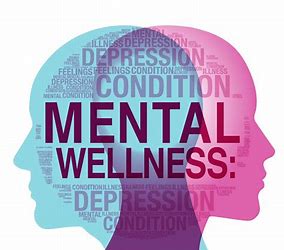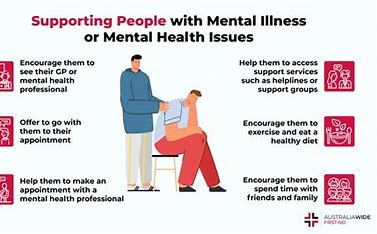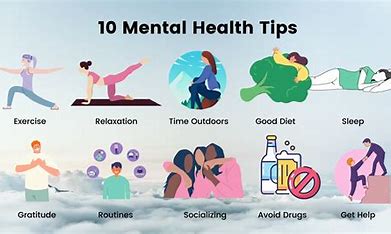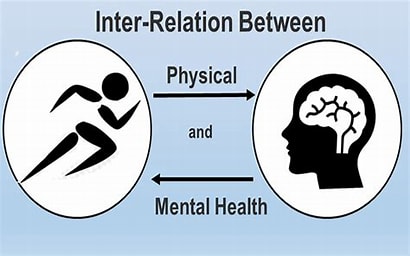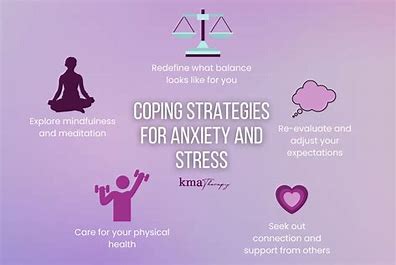With the rising rates of mental health challenges—particularly the tripling of depression cases during the COVID-19 pandemic—taking care of oneself has never been more important. Whether you’re supporting someone with a mental health condition or experiencing your own struggles, the key to helping others lies in first helping yourself.
Engaging in self-care is not just about relaxation; it’s a powerful tool that can help reduce anxiety, depression, and stress while increasing happiness and overall well-being. Self-care fosters resilience, allowing you to adapt to life’s challenges and build stronger relationships. Below, we’ll explore the essential steps for creating a self-care routine that promotes balance and wellness.
Key Benefits of Self-Care
| Benefit | Impact |
|---|---|
| Reduced Stress | Lowers anxiety and improves mental clarity |
| Enhanced Productivity | Increases focus, energy, and efficiency |
| Better Physical Health | Reduces the risk of heart disease and cancer |
| Increased Happiness | Boosts mood and emotional stability |
Benefits of Self-Care
Self-care routines have been proven to:
- Reduce stress and anxiety
- Improve overall happiness and emotional balance
- Boost physical health by reducing risks of diseases like heart disease and cancer
- Increase productivity and self-confidence
4 Simple Ways to Start Your Self-Care Routine
Move More: Physical activity is not only good for your body but also for your mind. Studies have shown that regular exercise helps reduce symptoms of depression and anxiety. Even simple activities like walking or hiking can make a significant difference, especially when done outdoors, where exposure to nature has additional calming effects.
Eat a Balanced Diet: What we consume has a direct impact on both our mental and physical health. Incorporating foods rich in nutrients—such as fruits, vegetables, whole grains, and fatty fish—can help boost mood-regulating chemicals like serotonin and dopamine. Limiting processed foods and cooking more meals at home ensures you’re nourishing your body properly.
Prioritize Sleep: A good night’s sleep is crucial for both mental and physical health. Regular sleep helps regulate mood, improve brain function, and provide the energy necessary to face daily challenges. Adults typically need 7-8 hours of sleep, and sticking to a consistent sleep schedule can help improve sleep quality.
Set Boundaries: To protect your mental health, it’s essential to set personal boundaries—especially during stressful times like the pandemic. Establish limits on activities or interactions that cause you stress, and give yourself permission to say no. This can be as simple as turning off your phone during meals or setting work boundaries while at home.
Essential Self-Care Practices
| Practice | Description |
|---|---|
| Physical Activity | Boosts mental and physical health, reduces stress |
| Healthy Diet | Enhances mood, boosts energy, supports the immune system |
| Sleep | Regulates mood and increases cognitive function |
| Setting Boundaries | Reduces stress by limiting overwhelming activities |
Achieving Wellness in Different Areas of Life
Self-care is about balancing multiple aspects of life. According to the Substance Abuse and Mental Health Services Administration (SAMHSA), the eight dimensions of wellness include emotional, spiritual, intellectual, physical, environmental, financial, occupational, and social. Addressing these areas through self-care ensures a more holistic approach to personal well-being.
Eight Dimensions of Wellness
| Dimension | Example of Self-Care Activity |
|---|---|
| Emotional | Journaling or talking with a trusted friend |
| Spiritual | Meditation or spending time in nature |
| Physical | Exercising regularly, eating healthily |
| Social | Engaging with friends or joining a community group |
| Intellectual | Reading, learning a new skill |
| Environmental | Organizing your space, spending time outdoors |
| Financial | Creating a budget, managing expenses |
| Occupational | Setting work-life balance, seeking career growth |
Start by assessing how you can improve each of these dimensions in your life. Whether it’s learning something new, maintaining financial stability, or building stronger social connections, each aspect is vital to overall wellness. Self-care should not feel like a chore—it should refuel and revitalize you.
Frequently Asked Questions (FAQs)
Q1: How often should I engage in self-care?
Self-care should be a regular part of your routine. Aim to incorporate some form of self-care daily, even if it’s just a few minutes of relaxation or mindfulness.
Q2: Can self-care really improve my mental health?
Absolutely. Research shows that regular self-care practices help reduce symptoms of depression, anxiety, and stress while improving mood and overall well-being.
Q3: What if I don’t have time for self-care?
Start small. Even dedicating 10-15 minutes a day to self-care activities can make a difference. Over time, as you experience the benefits, you may find it easier to prioritize.
Q4: What are the best self-care activities for beginners?
Simple activities like walking, meditating, cooking a healthy meal, or journaling are great starting points. Choose activities that make you feel refreshed and happy. By incorporating these self-care strategies into your routine, you can improve your mental, emotional, and physical health, allowing you to be the best version of yourself for both you and those around you.


